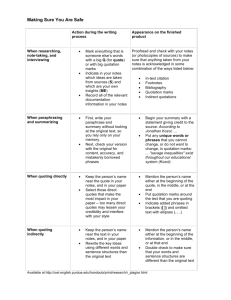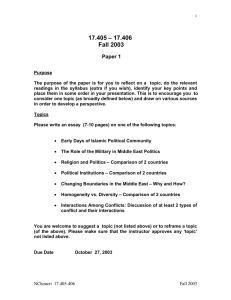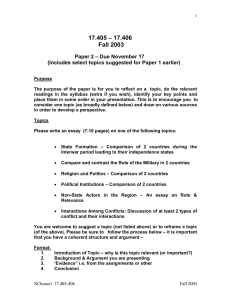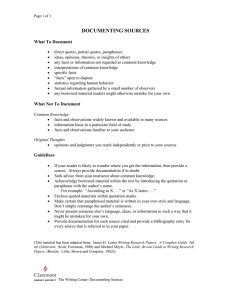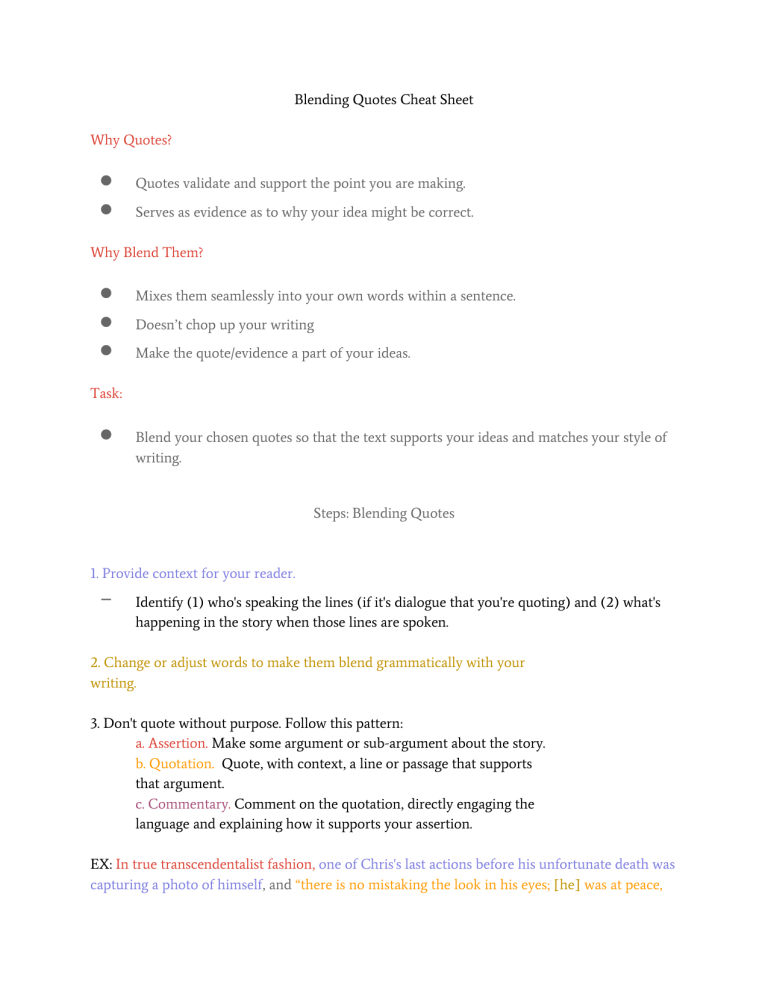
Blending Quotes Cheat Sheet Why Quotes? ● ● Quotes validate and support the point you are making. Serves as evidence as to why your idea might be correct. Why Blend Them? ● ● ● Mixes them seamlessly into your own words within a sentence. Doesn’t chop up your writing Make the quote/evidence a part of your ideas. Task: ● Blend your chosen quotes so that the text supports your ideas and matches your style of writing. Steps: Blending Quotes 1. Provide context for your reader. - Identify (1) who's speaking the lines (if it's dialogue that you're quoting) and (2) what's happening in the story when those lines are spoken. 2. Change or adjust words to make them blend grammatically with your writing. 3. Don't quote without purpose. Follow this pattern: a. Assertion. Make some argument or sub-argument about the story. b. Quotation. Quote, with context, a line or passage that supports that argument. c. Commentary. Comment on the quotation, directly engaging the language and explaining how it supports your assertion. EX: In true transcendentalist fashion, one of Chris's last actions before his unfortunate death was capturing a photo of himself, and “there is no mistaking the look in his eyes; [he] was at peace, serene as a monk gone to God” (Krakauer 199). Through focusing on nature and himself, and opposing materialism, Chris achieved the true purpose of transcendentalism and was able to die happy. Parenthetical Citation Cheat Sheet “Put commas and periods within quotation marks, except when a parenthetical reference follows.” ● This usually happens when you’re writing dialogue. ● EX: “Mom, you look very nice today.” “Put commas and periods within quotation marks, except when a parenthetical reference follows” (Purdue Owl). ● This usually happens when you’re quoting literature or a source that needs to be cited. ● EX: “Chris McCandless was at peace, serene as a monk gone to God” (Krakauer 199). When there is a passage written by a different author (EX: epigraphs in Into the Wild): If there is no access to the source being quoted (which there is in our novel), you would simply note that it was quoted in Into the Wild. ● EX: "Dark spruce forest frowned on either side the frozen waterway" (qtd. in Krakauer 9). However, since we do have the source, but not the page number, you can refer to the author it was written by. ● EX: "Dark spruce forest frowned on either side the frozen waterway" (London). When you are quoting dialogue from a character (EX: Nick from The Great Gatsby): Use double quotation marks around the quotation and single quotation marks around the character’s speech that is within the quotation: ● EX: “‘You live in West Egg,’ she remarked contemptuously. ‘I know somebody there’” (Fitzgerald 11).
